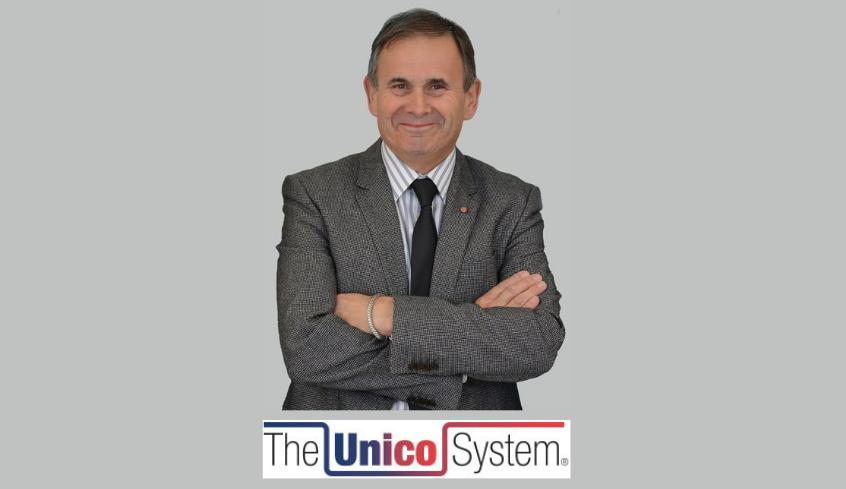Heating, Ventilation and Air Conditioning (HVAC) technology plays a crucial role in maintaining comfortable environments in all types of residential property. The overall aim of any system is the provision of desired levels of heating, cooling and air quality. Homeowners will generally have different products and approaches in place to cover these requirements, but more often than not they will be employed independently of each other.
Most properties in the UK are fitted with some form of heating to provide warmth, but for ventilation or cooling, an open window to provide “fresh air” is usually the answer. This picture is changing, however, as higher summer temperatures are expected to be more prevalent and because new build homes are being designed to be more energy efficient and tightly sealed than ever before. The use of renewables continues to increase, encouraged by financial incentives, in our quest to meet global warming deadlines and create many more eco-friendly homes.
Indeed, the application of renewables has been highly significant in the development of HVAC systems for the home. Heat Pumps which take energy from the air or ground, alongside solar PV and other renewable sources, can be used with traditional radiator systems, warm air & underfloor heating, electric radiant panels as well as hot water storage. They are being specified more and more in new housing developments, self-builds projects as well as for home renovation or improvement projects, whether modern family houses or heritage properties.
Home air conditioning has traditionally not been a high priority. Wheeling out a portable air conditioner or natural ventilation over a few hot summer nights is often the approach, but with climate change, a new way of thinking is needed. Traditional fixed air conditioning technology, whether ducted or split systems could be the answer, but there are drawbacks. For any property, issues such as cost, available space, installation disruption, aesthetics and air distribution performance all need to be considered.
An alternative would be to consider small duct high velocity (SDHV) systems that provide an all-in-one holistic solution covering heating, cooling, ventilation, air purification, humidity control and are also wholly compatible with renewables. Convenient, smaller footprint air handling units and flexible supply ducting makes for much easier installation and they offer greater versatility in how the air in the home is conditioned for warmth and cooling.
A traditional AC system distributes cool air unevenly into a room, leading to draughts and uneven temperatures across the space. On the other hand, a UnIco SDHV system uses a principle known as aspiration. This air delivery method uses a lower volume of air moving at a high velocity. Aspiration creates a gentle suction around the room outlets, drawing the room's air into its stream of cooled air. This ensures better comfort to occupants by eliminating draughts and cold or hot spots. The result is even temperatures, from room to room, floor to floor and floor to ceiling. The temperature differential is no greater than 1º C throughout the entire space.
Furthermore, a traditional air conditioning system dumps cool air into a room until it hits the temperature set on the thermostat. Once it hits that level, the system shuts off and the humidity level slowly increases, making the living space uncomfortable. On the other hand, a Unico SDHV system can remove 30% more humidity than a traditional air conditioning system. Rather than just temperature, it also focuses on humidity levels. The air handler in the system takes advantage of lower airflow and has larger cooling coils so that the air spends more time on the coils, allowing moisture to be removed more efficiently. This reduces both temperature and humidity, thereby increasing personal comfort.
Greater awareness of the health risks associated with poor indoor air pollution has made us much more aware of the need for proper ventilation. Replacing the air inside to improve its quality is essential to keep humidity levels under control, protecting those with asthma, allergies and respiratory problems.
If a property is heated, it must be ventilated and today's well insulated homes need proper ventilation to prevent humidity becoming an issue. Aside from the health issues, humidity increases the risk of condensation, mould growth and can lead to longer term damage to the structural integrity of a property. In older or heritage homes, wooden doors, floors and window frames can be directly adversely affected by humidity and along with other architectural features, they need to be properly preserved.
Depending upon the property and specific requirements, residential ventilation solutions may cover Mechanical Ventilation with Heat Recovery, Whole House Ventilation Systems and Central Extract Systems. With a central Unico SDHV system, homeowners now do not need to choose between comfort, Indoor air Quality and building preservation - as an all-in-one solution, it heats, cools, ventilates and addresses humidity and air quality issues too. The installation flexibility of SDHV also makes it well suited to new and older properties alike.
Beyond ventilation, the Unico System is fitted with a standard filter for air filtration. Users can also go further by upgrading to higher efficiency filters and air purification technology. UV light, for example, can be easily incorporated and effectively eradicate airborne viruses, pathogens and bacteria.
With any HVAC solution for the home, compatibility between the different elements is critical. An integrated customised system design should address all aspects including building structure and layout, rooms and their usage, interior design, integration with smart home and other building services as well as practical installation considerations.
Whether the final choice is SDHV technology or not, the task is best left to specialist designers, installers and system integrators who can liaise with suppliers, architects, engineers, project managers and homeowners at every stage of the venture.
The Unico System is an Industrial Associate of CIPHE, to see the full list of Industrial Associates check out the directory HERE

